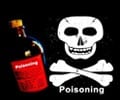![Quiz on Rat Poisoning]()
Introduction
Rat poisons are strong chemicals used to get rid of rodents like rats and mice. They are among the most dangerous substances commonly present in households. Initially, heavy metals like arsenic were used to control rodent populations, but in the 21st century, anticoagulants have emerged as the predominant choice for rat poison. In cases of rat poisoning, seeking prompt medical attention is crucial (
1✔ ✔Trusted Source
Rodenticide Toxicity
Go to source).
When ingested by humans, either by accident or intentionally, different rat poisons have varying effects on the body. These can include severe metabolic issues, muscular spasms,
heart problems, lung damage,
vomiting,
diarrhea, low blood pressure, and organ damage. Additionally, they may lead to stomach discomfort, nerve problems, hair loss, skin discoloration, seizures, low calcium, and severe metabolic disorders (
1✔ ✔Trusted Source
Rodenticide Toxicity
Go to source).
By taking this quiz, one can gain knowledge regarding rat killer poisoning. The quiz consists of ten questions, each accompanied by an explanation of the correct answer.
The topics covered are:
-
Another name for rat poison (1✔ ✔Trusted Source
Rodenticide Toxicity
Go to source)
- Available forms of rat killer poison (2✔ ✔Trusted Source
Rodenticides Fact Sheet
Go to source)
- Highly toxic rodenticide (3✔ ✔Trusted Source
Rodenticide Poisoning
Go to source)
- Symptoms in children (4✔ ✔Trusted Source
Effects of bromadiolone poisoning on the central nervous system
Go to source)
- Effect on brain (5✔ ✔Trusted Source
A fatal case of multi-organ failure in acute yellow phosphorus poisoning
Go to source)
- Complications
- Treatment (7✔ ✔Trusted Source
Clinical Profile and Outcomes of Rodenticide Poisoning in Tertiary Care Hospital
Go to source)
- Antidote
- Commonly observed














